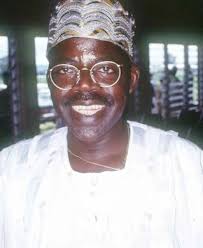By Princess G. Fraser, MFR
The National Patriots.
Headlinenews.News Special Report.
Executive Summary
A motion has been filed in a U.S. District Court by American activist Aaron Greenspan seeking full access to the FBI and DEA files on Bola Ahmed Tinubu, President of Nigeria. The request is made under the U.S. Freedom of Information Act (FOIA). President Tinubu objects to the release of his personal records on grounds of privacy, timing (amidst Nigeria’s pre‐election environment), and the risk of misuse for political mudslinging. This piece argues that under the U.S. law—especially FOIA Exemption 7(C)—and consistent precedent, the Court should reject or withhold the records until at least after the Nigerian 2027 election or longer, unless there is a compelling public interest with evidence of wrongdoing.


Legal Framework: FOIA and Privacy Protections
1. FOIA and its Exemptions
The U.S. Freedom of Information Act (5 U.S.C. § 552) grants the public a right to inspect federal agency records—but with nine statutory exemptions and certain exclusions.
Exemption 7 applies specifically to “records or information compiled for law enforcement purposes.” Under this, subsection 7(C) protects information that “could reasonably be expected to constitute an unwarranted invasion of personal privacy.”
2. Precedent Cases
United States Department of Justice v. Reporters Committee for Freedom of the Press (1989): The U.S. Supreme Court held that disclosure of an FBI “rap‐sheet” under FOIA would amount to an unwarranted invasion of privacy under Exemption 7(C), balancing public interest vs privacy.
National Archives and Records Administration v. Favish (2004): The Court held that even for a deceased individual, family privacy interests and absence of evidence of improper conduct can dismiss a FOIA claim. § 552(b)(7)(C) requires evidence of wrongdoing to outweigh privacy.
3. Balancing Public Interest vs Individual Privacy
Exemption 7(C) requires a four‐step analysis:
a) Are the records compiled for law enforcement purposes?
b) Is there a significant privacy interest?
c) What is the requester’s asserted public interest?
d) Balance the private interest in nondisclosure vs. public interest in disclosure.
Being a public figure does not eliminate all privacy rights. Even presidents, once in office, do retain certain privacy protections—particularly regarding personal records not directly connected to governmental misconduct or public‐government functions.
Comparative and Historical Context
1. Prince Harry’s Privacy Battles (UK & US context)
Prince Harry has repeatedly taken legal action in the UK over privacy violations: phone hacking, intrusion by journalists, and publication of private correspondence. Courts have at times ruled in his favor, awarding damages, apologies, or upholding expectations of privacy.
Example: In Meghan Markle v. Associated Newspapers Ltd., the UK High Court accepted that private letters had a reasonable expectation of privacy and that publication of extracts was unlawful.
These show that even public figures with high media profiles have successfully defended their rights to privacy when the publication or release of records was not justified by a higher public interest.
2. Other U.S. Examples / Precedent
FOIA Exemption 7(C) has been used to withhold FBI and law enforcement records when disclosure would stigmatize or harm a person without sufficient countervailing public interest.
In Favish, even when there was interest in preserving historical record (a deceased official), the Court required proof of wrongdoing to release materials.
Key Arguments in Support of President Tinubu’s Position

1. Privacy Rights Intact Despite Public Office
If Tinubu was not a U.S. public official at the time of the alleged events, his privacy interests are stronger. Even after becoming president, unless records are directly tied to misuse of public authority or wrongdoing, personal or law enforcement records remain protected under FOIA’s exemptions.
2. Risk of Political Weaponization
The timing (pre‐election in Nigeria) suggests potential misuse for character attacks rather than genuine public interest. Negative propaganda can distort context. Releasing raw law enforcement or intelligence files may enable conspiracies, spread misinformation, or be used unfairly in political campaigns.
3. Absence of Evidence of Wrongdoing
FOIA jurisprudence requires more than speculative harm or generalized public interest. There must be specific allegations or evidence of illegal acts by the official, linked to the requested records, to outweigh privacy interests.
On Greenspan’s Claims of Wrongdoing

“Aaron Greenspan has casually referred to alleged “wrongdoings” by President Tinubu, but such statements remain wholly unsubstantiated. Under the rule of law, accusations are not facts, and in Nigeria’s democratic framework it is the duty of Nigerian courts and security agencies—not foreign activists or commentators—to investigate and determine whether any leader has committed an offense.
To date, President Bola Tinubu has never been indicted or formally accused by any Nigerian authority for the allegations Greenspan seeks to sensationalize. It is legally and ethically unacceptable for vague, unproven claims, repeated without evidence, to serve as the basis for breaching an individual’s privacy rights. U.S. courts have consistently held that mere suspicion or speculation is not enough to override privacy protections under FOIA Exemption 7(C).

To allow such untested assertions to justify releasing sensitive law enforcement files would set a dangerous precedent—transforming FOIA into a political weapon, rather than a tool for transparency in government conduct. Greenspan’s “word of mouth” claims should therefore be given no weight by the Court.” – Princess G. Fraser. MFR.
4. US Privacy Law & International Comity
U.S. courts often consider principles of comity and respect for foreign leaders, particularly when requests concern non‐U.S. citizens, unless there is a compelling public interest.
5. Exemption 7(C): Unwarranted Invasion Standard
The “could reasonably be expected to constitute an unwarranted invasion of personal privacy” standard is an intentionally low bar for privacy protection. That means many records—even law enforcement files—may be withheld under this exemption.
Counterarguments and Rebuttals
The public has a right to know what intelligence agencies hold, especially around allegations tied to leadership. That right does not override statutory FOIA exemptions. The public interest must be specific—e.g., evidence of misuse or government misconduct—not generalized curiosity or political gain.
He is a public figure; therefore, privacy should be reduced. True, public figures have reduced expectations in some domains (speech, political acts), but personal law enforcement or intelligence files are different. Even in cases involving public figures, U.S. Supreme Court precedent (e.g., Reporters Committee) has protected privacy where disclosure does not serve oversight of wrongdoing.
Foreign public interest could weigh in favor. Foreign interest alone is insufficient under the U.S. law without showing that release serves a U.S. public interest (misconduct, violation of U.S. law, or similar).
Suggestion: Temporary Protective Stay or Full Denial until 2027/2032
Even if some parts of the record might be disclosable under theory of “public interest,” there is strong justification for deferring disclosure until after the 2027 Nigerian presidential election preferably until after Tinubu’s full term (if & when re‐elected by Gods grace), to prevent interference.
This is similar to practices in the U.S. and elsewhere, where sensitive materials are redacted or sealed until public interest demonstrably outweighs harm.
International Norms & Statements Supporting Privacy
The United Nations’ Universal Declaration of Human Rights recognizes, in Article 12, the right to privacy and protection against arbitrary interference.
The International Covenant on Civil and Political Rights (ICCPR) similarly protects privacy, even for public figures, except where limitations are necessary and proportionate for a legitimate aim.
Global jurisprudence (e.g., UK courts) in privacy law have emphasized that “reasonable expectation of privacy” must be respected—even for royalty, heads of state, etc.—unless wrongdoing is shown. The cases of Prince Harry and Meghan Markle illustrate this in practice.
Recommendations & Conclusion

The U.S. District Court should deny or withhold the requested FBI and DEA files under FOIA Exemption 7(C), unless the requester demonstrates evidence of wrongdoing that directly relates to government misconduct, public corruption, or similar matters of substantial public interest in the U.S. or Nigeria.
If any portion of documents are partially relevant, those should be redacted—names, identifying details, and unrelated private matters removed—rather than full release.
Strong recommendation that the Court consider delaying any disclosure until after the 2027 Nigerian elections preferably until Tinubu’s second term ends by God’s grace in 1932 to avoid misuse, political disturbance, and negative propaganda.
Even courts in the U.S. respect that privacy is not forfeit simply because of public office, especially for non‐U.S. citizens with allegations that have not been proven.
Here’s a polished addition you can slot straight into your report:
On the Primacy of Legal Process
When Nigeria’s Supreme Court dismissed opposition challenges to his election, President Tinubu stated:
> “The Court has done justice to all issues put up for consideration in the petitions on the merits of the law, without fear or favor.”
This declaration underscores Tinubu’s consistent insistence on due process, fairness, and the rule of law—that accusations must be tested against evidence before a competent court, not judged in the court of public opinion.
Placed against Aaron Greenspan’s vague and unsubstantiated claims, the contrast is stark. Tinubu appeals to legal scrutiny and evidence, while Greenspan relies on conjecture and insinuation. In such circumstances, rumors without proof cannot and should not override the fundamental right to privacy. To do otherwise would erode the very principles of justice that both the Nigerian and U.S. legal systems are built upon.
Final Appeal
President Bola Tinubu is subject to political rivalry and criticism—as all democratic leaders are—but that does not mean the justice systems of other nations should be co‐opted to serve partisan agendas abroad
Justice demands balance: transparency where there is clear public interest and evidence; privacy where release would be an unwarranted invasion, a tool for blackmail, character assassination, and political destabilization.
For the sake of fairplay, democratic norms, international respect, and basic human dignity, the U.S. Courts must protect the privacy rights of Bola Tinubu under FOIA law and international human rights principles.
The National Patriots intends to submit an amicus brief or legal memorandum to the District Court in Columbia in respect of this matter.

Princess G. Fraser. MFR.
Founder, The National Patriots.




